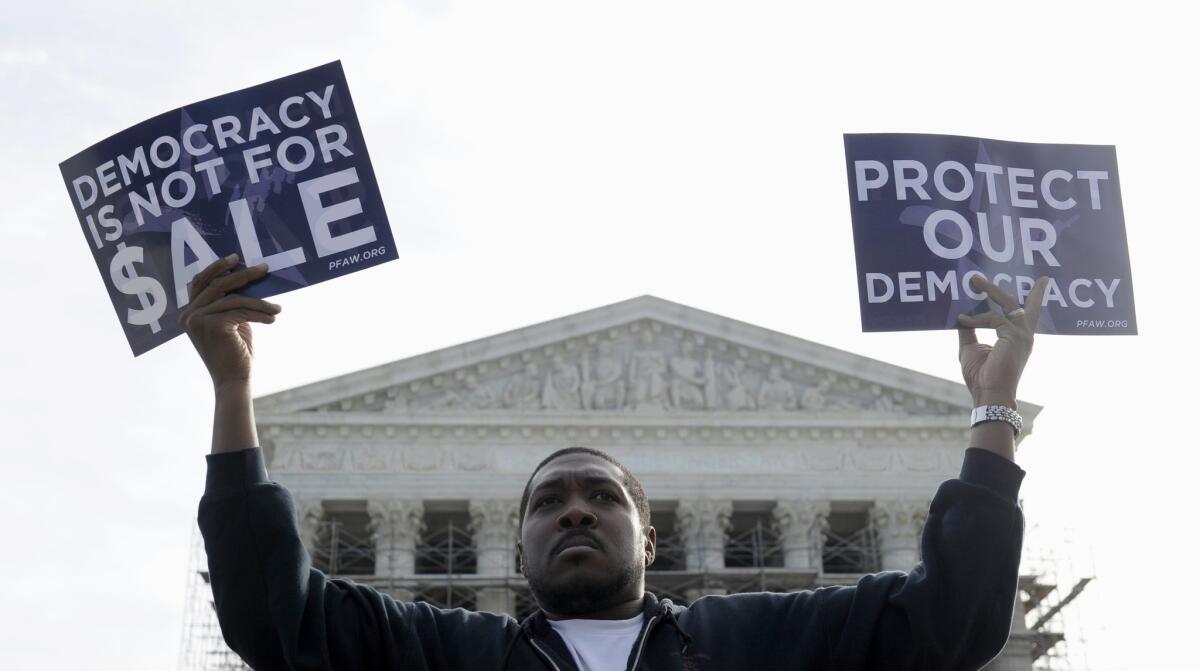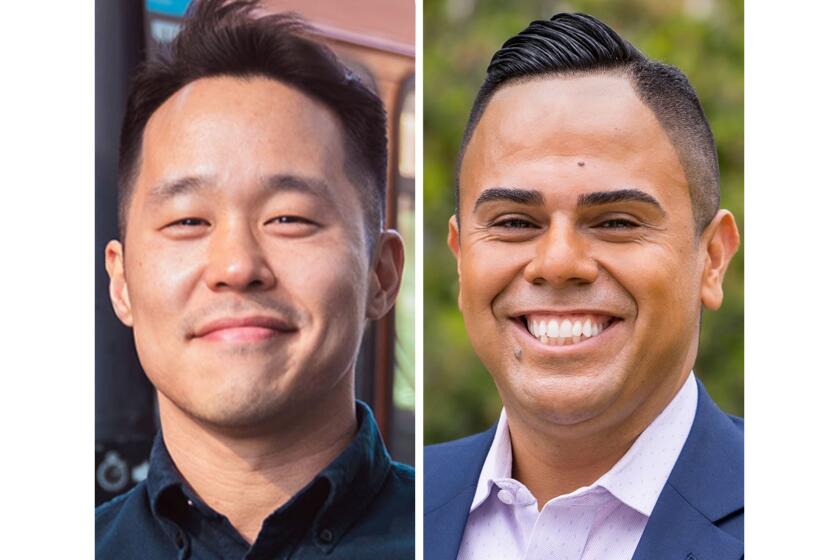Did the Supreme Court just open the door to political corruption?

Money won. Doesn’t it always?
It was not a big surprise that the Supreme Court’s 5-4 decision today striking down certain limits on federal campaign contributions was divided along partisan lines.
Conservative justices sided with the idea that money equals speech, and that speech should be limited as little as possible. (Justice Clarence Thomas said there should be no limits at all.)
Money, argued the losing liberal minority, drowns out other, equally protected political speech.
The case was brought by Alabama businessman Shaun McCutcheon and the Republican National Committee, who argued that Watergate-era restrictions on aggregate campaign donations were unconstitutional.
In an impassioned dissent, Justice Stephen G. Breyer rightfully noted that the decision “eviscerates the nation’s campaign finance laws,” and “creates a loophole that will allow a single individual to contribute millions of dollars to a political party or to a candidate’s campaign.” (Super PACS have already figured out how to skirt the limits; today’s decision simly opens the money floodgates even more.)
In his opinion for the majority, Chief Justice John G. Roberts Jr. said that Congress has only one legitimate interest in regulating campaign contributions: to protect against corruption or the appearance of corruption. Congress may not limit political donations for any other reason, he said — not to reduce the amount of money in politics, equalize the financial resources of candidates or lessen the “general gratitude” a candidate may feel toward a donor nor the “political access” a donor receives.
“Money in politics may at times seem repugnant to some,” he wrote, “but so too does much of what the 1st Amendment vigorously protects. If the 1st Amendment protects flag burning, funeral protests, and Nazi parades — despite the profound offense such spectacles cause — it surely protects political campaign speech despite popular opposition.”
What is striking about today’s decision is the way each side defines political corruption.
Roberts wrote that Congress may only target a specific kind of corruption — the quid pro quo type, where, say, a donor gives money with the understanding that the politician will do a specific thing in return.
But Breyer dismissed that narrow, crabbed definition of corruption. Roberts, he said was describing an act of bribery.
But there is a more important objective at risk when nearly unlimited sums of money are tossed around in political campaigns: the relationship between citizens and their elected representatives.
The framers were very clear, wrote Breyer. The 1st Amendment protects not just the right to free speech, but the right of the people to be heard by their representatives.
“The 1st Amendment advances not only the individual’s right to engage in political speech, but also the public’s interest in preserving a democratic order in which collective speech matters,” he wrote. “What has this to do with corruption? It has everything to do with corruption. Corruption breaks the constitutionally necessary ‘chain of communication’ between the people and their representatives. It derails the essential speech-to-government-action tie. Where enough money calls the tune, the general public will not be heard.”
Start dancing, suckers.
Twitter: @robinabcarian
More to Read
Get the L.A. Times Politics newsletter
Deeply reported insights into legislation, politics and policy from Sacramento, Washington and beyond. In your inbox three times per week.
You may occasionally receive promotional content from the Los Angeles Times.











